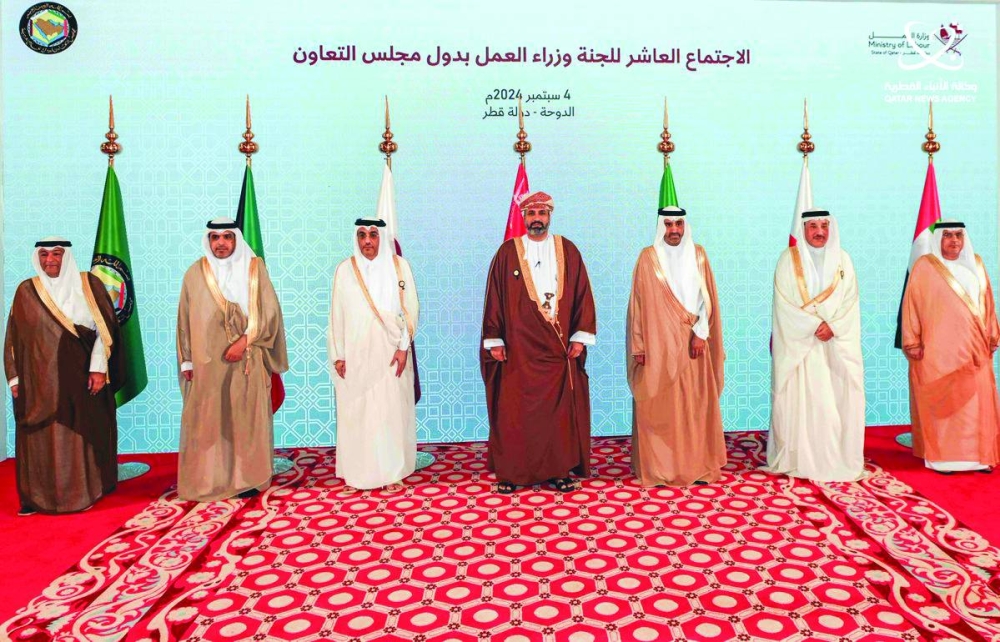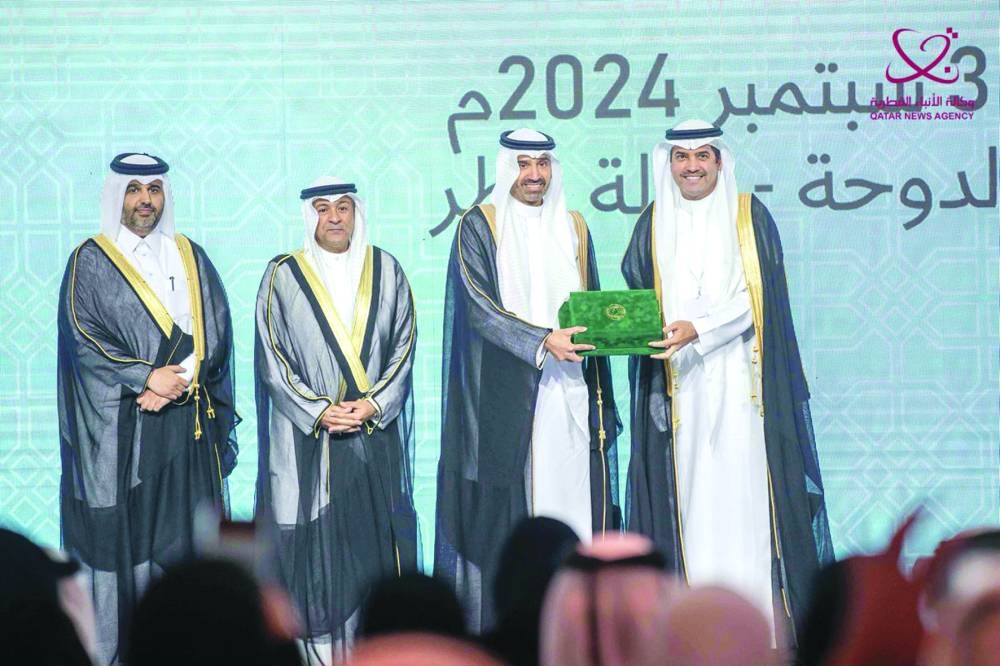The GCC Labour Ministers Committee held its 10th meeting in Doha under the chairmanship of HE the Minister of Labour Dr Ali bin Smaikh al-Marri and in the presence of GCC Secretary-General Jasem Mohamed Albudaiwi.
The ministers explored ways to enhance collaboration in the Gulf labour market, learn from the successful practices of GCC countries, and discuss various issues of common interest to the GCC countries. In his speech during the meeting, HE Dr al-Marri highlighted the impact of the unique circumstances in the Arab region on labour markets, employment, occupational safety, and health, as well as the influence of the digital revolution on the workforce.
He also focused on challenges such as forced labour, human trafficking, and child labour. He emphasised the importance of implementing policies to enhance social protection programmes and preserve workers' rights in the private sector. He underlined the need to update laws to make the job market more efficient and appealing to both national and international talent.
He added that Arab Gulf countries have similar labour laws, wage protection, and occupational safety, which helps to ensure the success of effective decisions and initiatives.
He said that the GCC countries require legislative updates in response to quick labour market shifts. He highlighted the GCC's focus on promoting sustainability and environmental preservation in workplaces through recycling and renewable energy use to mitigate climate change impacts and protect the environment.
GCC Secretary-General Albudaiwi noted that the directives of the leaders of the GCC countries, had a significant impact in advancing the track to achieve the desired goals, which culminated in the GCC countries achieving great successes in various economic, social, and political fields over the past years. In this context, he pointed to the remarkable progress of the GCC countries in the Global Competitiveness Index for 2023, as well as in the Youth Progress Index.
He said that the GCC countries are among the top 30 countries out of 150 countries covered by this index, and other international indicators that confirm the success of the strategic solutions and initiatives adopted by the GCC countries within their visions and development plans, which requires strengthening these gains and building on them, guided by the directives of the GCC leaders.
The meeting discussed various topics that would enhance joint Gulf action in the labour market. The key topics that the meeting also addressed were the Gulf framework for combating human trafficking and forced labour, as well as legislation related to women's employment and maternity leave across the GCC.
On Tuesday night, on the sidelines of the meetings, Doha witnessed a ceremony honoring a distinguished elite of administrative competencies, personalities, institutions, and leading companies in the fields of labour and social development in the GCC countries.


